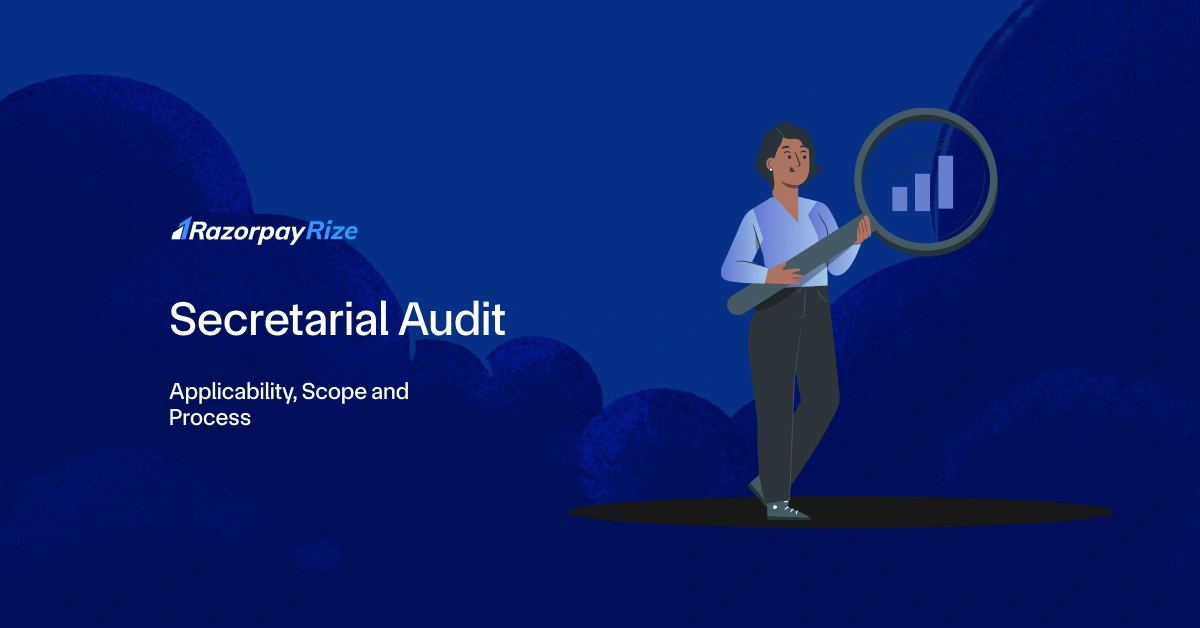The Start-ups Intellectual Property Protection (SIPP) scheme is a government initiative designed to help young businesses secure their ideas and innovations- whether it’s a new product, brand name, or design.
Managed by the Controller General of Patents, Designs, and Trade Marks (CGPDTM), the scheme connects startups with registered IP facilitators who guide them through the entire filing process.
By making IP protection affordable and straightforward, SIPP empowers founders to focus on building and scaling their ideas while ensuring their hard work and creativity stay protected.
In this blog, we’ll break down how the SIPP scheme works, who can apply, and how it helps startups protect what truly sets them apart- their innovation.
Table of Contents
Objective of Start-Ups Intellectual Property Protection (SIPP)
The primary objective of the SIPP scheme is to promote awareness and adoption of Intellectual Property Rights (IPRs) among startups. It seeks to mentor and guide entrepreneurs in protecting their innovations, ideas, and designs.
The scheme helps startups commercialise their creations effectively by providing access to quality IP resources and expert guidance. Ultimately, SIPP aims to foster a culture of creativity, innovation, and intellectual property protection, empowering Indian startups to compete globally while securing their technological and creative advancements.
SIPP Benefits for Start-Ups
The SIPP scheme offers several benefits to startups:
- Government-funded IP support: Startups only need to pay the statutory filing fees, while the government bears the facilitators’ professional charges.
- Comprehensive IP coverage: The scheme covers patents, trademarks, and designs, enabling holistic intellectual property protection.
- Expert facilitation: DPIIT-appointed facilitators provide end-to-end services from application filing to final approval, ensuring startups can focus on innovation rather than legal complexities.
- Reduced financial burden: With professional charges fully reimbursed by the government, startups can protect their innovations without incurring heavy legal or consultation costs.
Start-Ups Eligibility Criteria for SIPP
To avail of the benefits under SIPP, a startup must meet the following eligibility criteria:
- DPIIT Recognition: The startup must be recognised by the Department for Promotion of Industry and Internal Trade (DPIIT) under the Startup India initiative.
- Entity Type: The entity should be incorporated as a Private Limited Company, Limited Liability Partnership (LLP), or Partnership Firm.
- Age of the Startup: The startup must be less than 10 years old from the date of incorporation.
- Turnover Limit: The annual turnover should not exceed ₹100 crore in any financial year since incorporation.
- Innovation Focus: The startup should be engaged in developing innovative products, services, or processes with high potential for wealth creation or employment generation.
- No Business Split: The startup should not have been formed by splitting or reconstructing an existing business.
Facilitators Under SIPP
Facilitators play an important role in helping startups navigate the complexities of IP filing and registration. Their conduct and performance are regulated by the Controller General of Patents, Designs, and Trade Marks (CGPDTM).
Facilitators under SIPP may include:
- Registered Patent and Trademark Agents
- Advocates specialising in intellectual property law
- Government organisations and Central Public Sector Undertakings (CPSUs) such as TIFAC, NRDC, BIRAC, MeitY, and CSIR
All intellectual property applications must be signed and submitted by an authorised person as per the relevant Acts and Rules governing patents, designs, and trademarks.
Empanelment of Facilitators
The DPIIT, through the CGPDTM, empanels qualified facilitators to assist startups under the SIPP scheme. The empanelment process ensures facilitators possess the necessary qualifications and experience to handle IP matters.
Key aspects of the empanelment process include:
- Facilitators are appointed and maintained in an official list by CGPDTM.
- They are prohibited from charging startups directly, as the government reimburses their fees.
- The list of empanelled facilitators is regularly updated and made available on the official DPIIT website for startups to easily access.
Functions and Duties of Facilitators
Facilitators under the SIPP scheme have clearly defined functions and responsibilities, including:
- Providing pro bono advisory services on domestic and international IPRs.
- Assisting startups in filing and disposing of applications for patents, trademarks, and designs.
- Drafting patent specifications and completing necessary documentation.
- Responding to examination reports and official communications from the IP offices.
- Representing startups during hearings or legal proceedings.
- Contesting oppositions and ensuring proper defence of startups’ IP rights.
- Ensuring final disposal of all IPR applications, including registration and publication.
Duration of the SIPP Scheme
The Start-ups Intellectual Property Protection (SIPP) scheme is valid for a period of three years, up to 2026. During this time, startups can access the benefits of the scheme to protect their intellectual property at subsidised costs with expert facilitation.
Fees for Patents, Designs, and Trademarks Application
Payment of Fees to Facilitators
The payment process under SIPP is transparent and performance-based.
- Facilitators can claim fees only after completing each stage of work (filing or disposal).
- Each claim must be accompanied by a self-declaration from the startup confirming that no other government assistance was used for the same purpose.
- If an application is withdrawn or abandoned, payment is limited only to the filing stage.
- Facilitators must submit an invoice containing the startup’s DPIIT recognition number for verification.
- For trademark applications, final disposal is achieved once the trademark is registered.
Procedure for Filing Applications for Patents, Designs, and Trademarks Under SIPP
The SIPP scheme provides a streamlined procedure for startups to file IP applications efficiently, supported by qualified facilitators.
1. Patent Applications
- Selection of Facilitator: Startups choose a facilitator from the CGPDTM’s empanelled list.
- Filing: The facilitator prepares and files the patent application as per the Patents Act, 1970, and relevant rules.
- Statutory Fees: The startup pays only the statutory filing fees.
- Reimbursement: The government reimburses the facilitator’s professional charges directly.
- Monitoring: The facilitator handles examination reports and hearings while ensuring final disposal.
2. Design Applications
- Facilitator Support: Design applications are filed through facilitators registered under the Patents Act and Designs Rules.
- Compliance: The process follows the Designs Act of 2000 and associated rules.
- Filing to Disposal: Facilitators assist in application submission, examination response, and final approval stages.
3. Trademark Applications
- Application Filing: Facilitators file trademark applications under the Trade Marks Act, 1999, on behalf of startups.
- Claiming Fees: The facilitator’s fees are reimbursed after submission of a declaration and invoice.
- End-to-End Assistance: Facilitators manage hearings, oppositions, and ensure final registration of the trademark.
Frequently Asked Questions (FAQs)
Private Limited Company
(Pvt. Ltd.)
- Service-based businesses
- Businesses looking to issue shares
- Businesses seeking investment through equity-based funding
Limited Liability Partnership
(LLP)
- Professional services
- Firms seeking any capital contribution from Partners
- Firms sharing resources with limited liability
One Person Company
(OPC)
- Freelancers, Small-scale businesses
- Businesses looking for minimal compliance
- Businesses looking for single-ownership
Private Limited Company
(Pvt. Ltd.)
- Service-based businesses
- Businesses looking to issue shares
- Businesses seeking investment through equity-based funding
One Person Company
(OPC)
- Freelancers, Small-scale businesses
- Businesses looking for minimal compliance
- Businesses looking for single-ownership
Private Limited Company
(Pvt. Ltd.)
- Service-based businesses
- Businesses looking to issue shares
- Businesses seeking investment through equity-based funding
Limited Liability Partnership
(LLP)
- Professional services
- Firms seeking any capital contribution from Partners
- Firms sharing resources with limited liability
Frequently Asked Questions
How does IPR benefit Startups?
Intellectual Property Rights (IPR) provide startups with legal ownership and protection over their unique ideas, inventions, and creations. Here’s how it benefits them:
- Protects innovation
- Builds brand value
- Enables funding & valuation
- Creates revenue opportunities
- Boosts competitiveness
How are facilitator fees managed in the SIPP Scheme?
Under the Start-ups Intellectual Property Protection (SIPP) scheme, Facilitators (such as patent/trademark agents or advocates) cannot charge startups directly. Their professional fees are reimbursed by the government through the Intellectual Property Office (IPO).
Also, facilitators are paid based on specific milestones, such as filing an application or achieving final disposal.
Who can profit from the Startup Intellectual Property Protection Scheme (SIPP)?
The primary beneficiaries of the SIPP scheme are DPIIT-recognised startups that:
- Are less than 10 years old since its incorporation.
- Are registered as a Private Limited Company, LLP, or Partnership Firm.
- Have an annual turnover of less than ₹100 crore.
- Are engaged in innovative product, process, or service development.
Who is accountable for the legal charges in the SIPP Scheme?
In the SIPP scheme, the Government of India (through the DPIIT and CGPDTM) covers the facilitators’ legal and professional charges.
.webp)















